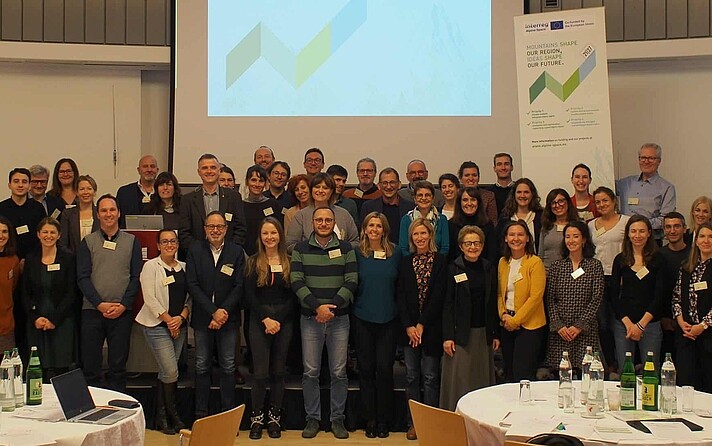New project together with BWI, ITS & IMT

To tackle food waste, for instance in the hospitality sector, there is a great potential for resource related to food overproduction or packaging. By applying the concept of circular economy to the food stream, CEFoodCycle will create a sustainable methodology to avoid food waste, reuse resources and close food cycles in the Alps. Resource saving potentials will be identified in product categories such as fruits and vegetables, meat or dairy products. A digital service system using artificial intelligence will connect stakeholders inside and outside the food stream. The project will enable different stakeholders to take into account resource and CO2 savings and strengthen sustainable and circular economic competitiveness in the Alps.
The vulnerability of Alpine areas calls to rethink the sustainability framework towards measurable actions. Food waste, for instance in the hospitality sector, occurs due to food overproduction, takeaway services or packaging. Little data and monitoring is at hand and no alpine-wide methodology available to measure resource savings along the food stream. Applying the concept of the Circular Economy (CE) to the food stream (production, use, disposal), the project creates a sustainable methodology to avoid food waste, re-use resources, and to close food cycles. For this, resource saving potentials for defined product categories such as fruit & vegetables, meat or dairy products are identified by consolidating Life-Cycle Assessment (LCA) standards. Based on data related to food production and consumption, connected CO2 emissions, Artificial Intelligence (AI) helps to design a digital service system that connects and enables stakeholders inside (e.g. farmers, food retailers, gastronomy) and outside the food stream (e.g. social associations, food banks, bioenergy generators) to identify optimization potentials to transparently close food cycles and monitor food waste and CO2 emission reduction. Such a holistic perspective is the foundation skill and capacity development of stakeholders, enhancing sustainable, circular economic competitiveness. Closed food cycles require a cross-border approach as relevant stakeholders often operate transnationally. Project outputs include 1) an alpine-wide consolidation of LCA methodology for defined food product categories, 2) an intelligent, digital LCA service system (IDLCASS) that helps users to evaluate decisions regarding resource / CO2 savings, 3) implementation of smart, closed circular food cycle networks, 4) regionally established Circular Food Hubs that acquire, educate and supervise stakeholders to make the impact of the AI system-supported decisions more sustainable, transparent and measurable.
10 partners out of 5 countries:
1. FH Salzburg (AT)
2. Austrian Institute of Ecology (AT)
3. E-zavod, E-institute, institute for comprehensive development solutions(Sl)
4. Nice Côte d’Azur Chamber of Commerce and Industry (FR)
5. BSC, Business support organisation, ltd., Kranj (Sl)
6. AVITEM, Agency for Sustainable Mediterranean Cities and Territories (FR)
7. LAMORO Development Agency (IT)
8. IDM Südtirol Alto Adige (IT)
9. University of Applied Sciences Munich (DE)
Durance: 36 month, starting january 2023
Project goals:
- Implementation of a CE framework in five pilot alpine regions to identify potentials for food waste and CO2 reduction along specified food streams.
- A digital, intelligent system based on LCA indicators (IDLCASS) to facilitate decision making towards food savings and closing food cycles.
- Collaborative learning, networking and transparency between different stakeholders inside (e.g. retailers) and outside (e.g. energy producers) food streams.
